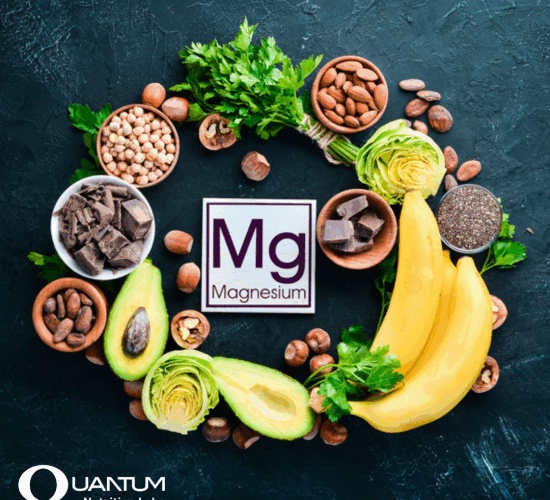
Feel the Magic of Magnesium
Do you feel that you just can’t seem to get out of a funky mood, no matter what you do? You may be lacking one important mineral that makes a significant impact on your mood – magnesium!
You may not think of magnesium as something that you might be deficient in, but it is one of sixteen essential minerals that your body requires for optimal health. In fact, it is the fourth most abundant mineral in your body. This magnificent mineral is a necessary cofactor in more than 300 enzyme systems in your body. Magnesium is concentrated in your bones and is necessary for making protein, proper muscle contraction, nerve health, and immune system function.1
However, did you know that this mineral serves another very interesting function in your body? It supports memory function. Magnesium helps to modulate the NMDA (N-methyl-D-aspartate) receptors in your brain which control memory function and synaptic plasticity (the ability of the neural activity to modify thoughts and feelings).2 These receptors respond to glutamate, a chemical that allows cells to signal other cells.3 This healthy cell signaling process is a big part of keeping your brain functioning optimally with a bright mood!
In addition, several other studies have evaluated the link between magnesium levels and mood disorders. One study determined that a strong link exists between a low magnesium intake and a major depressive disorder.4 The researchers concluded that nutritional supplementation with magnesium should be further studied for its significant role in the prevention and treatment of major depressive disorders. We are pleased to see this exciting new research about this powerful mineral!
Several different types of magnesium are available such as magnesium lactate, magnesium chloride, magnesium citrate, and magnesium oxide. However, each of these specific types has a different bioavailability. For example, magnesium oxide contains a high amount of elemental magnesium at 60%, but is poorly bioavailable and only absorbed at 4%. Unfortunately, this undesirable form of magnesium is common in poor-quality nutritional supplements.5 In contrast, magnesium lactate is a superior form of magnesium in both bioavailability and absorption.
Magnesium is naturally present in many foods including leafy green vegetables, legumes, nuts, seeds, and whole grains.6 In addition, you can increase your magnesium levels by taking it as a nutritional supplement. When selecting a magnesium formula to add to your daily nutritional regimen, we recommend that you choose a formula from a trusted, reputable company with high quality standards.
Sources:
1“Minerals: Their Functions and Sources.” Minerals: Their Functions and Sources | Michigan Medicine, www.uofmhealth.org/health-library/ta3912.
2Martínez-Cengotitabengoa M, González-Pinto A. Nutritional supplements in depressive disorders. Actas Esp Psiquiatr. 2017;45(Supplement):8‐15.
3“NMDA Receptor.” NMDA Receptor – an Overview | ScienceDirect Topics, www.sciencedirect.com/topics/neuroscience/nmda-receptor.
4 Eby, George A. “Magnesium and Major Depression.” Magnesium in the Central Nervous System [Internet]., U.S. National Library of Medicine, 1 Jan. 1970, www.ncbi.nlm.nih.gov/books/NBK507265/.
5Smith, Alison Astill. “The Definitive Guide To Magnesium & Magnesium Supplements.” Metabolics High Quality Nutritional Supplements, Metabolics, 6 Mar. 2020, www.metabolics.com/blog/the-definitive-guide-to-magnesium-and-magnesium-supplements.
6“Office of Dietary Supplements – Magnesium.” NIH Office of Dietary Supplements, U.S. Department of Health and Human Services, ods.od.nih.gov/factsheets/Magnesium-HealthProfessional/#h3.







